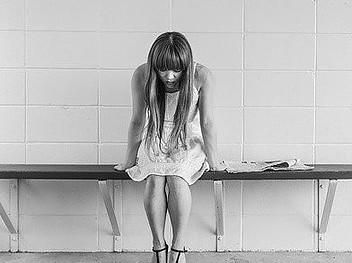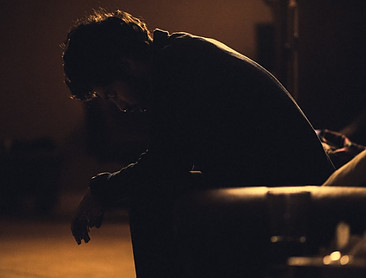
I was deeply saddened by the unexpected passing of a former Miss USA.
All this time, I honestly thought she was a happy-go-lucky type of girl, a rising star with so much potential in front waiting for her. A super young talented girl who worked so hard as a lawyer to advocate for many certain causes and social justice.
The cause of the incident is ruled as suicide, and I could not help but try to find out as many sources as I can on suicide risks and mentally ill issues.
What are the possible early warning signs of mentally ill disorder? How can you come back and recover from a mentally ill disorder?
Keep on reading.
Which Are The Main Mentally ill Issues?
We have to seriously look into mental illness or mental disorders in ourselves, friends, families, or loved ones.
This form of illness does have a big impact on our daily lives as it’ll affect our mood, behavior, thinking, and feeling. If this is not treated immediately and left for a longer time, the consequences are severe.
These six are the most common types of mentally ill issues that could affect anyone,
1. Anxiety is a common health and mental condition when not treated properly can lead to excessive fear, nervousness, tension, or worry.
It can seriously affect a person’s day-to-day activities disorder. Physical symptoms such as high blood pressure, sweating, or nausea can develop at this stage.
2. Bipolar disorder is considered an extreme mood change in a person. Also referred to as manic depression, the excessive mood swings can be emotionally low or high which can affect the person’s ability to function normally such as thinking, sleeping, and daily activities.
People diagnosed with bipolar disorder often experience unstable moods or emotions which can last for a few hours and potentially can ruin relationships with loved ones. It is a lifelong illness and can be managed with a treatment plan.
3. Depression. People with this serious mood disorder will lose interest (decreased mood) in the stuff they’d used to enjoy before. They are also feeling super sad or empty inside which is considered a serious mental issue affecting their thinking and action negatively.
If not treated early, depression can lead to suicide. According to the WHO report(1), approximately 700,000 people lost their lives due to suicides every year.
4. OCD (Obsessive Compulsive Disorder) is referred to as a mental illness where a person is having excessive thoughts and very compulsive behaviors.
People associated with OCD tend to try their best to stop their temporary obsessions and unpleasant behaviors which can eventually lead to deeper stress and anxiety.
5. PTSD (Post Traumatic Stress Disorder) is triggered by a past terrifying or scary event that either the person is witnessing or experiencing. This mental condition’s symptoms can be in form of nightmares, horrifying events, or, flashbacks.
PTSD can last for a long time even years if not treated well, although people with PTSD can get better with effective treatment.
6. Schizophrenia is also considered a seriously mentally ill issue. Since there is no exact cure for Schizophrenia and a person who is diagnosed with this mental illness may require lifelong treatment or early treatment to prevent more serious complications.
The patients are experiencing continuous delusions, hallucinations, and excessive disoriented thinking, behavior, and action which all can affect their daily activities.
According to the WHO report(2), this mental illness condition is affecting 1 in 300 people worldwide and sufferers’ lifespans are more likely 2 – 3 times shorter than the general population.

What Age Categories Suffers The Most From Mentally Ill Issues?
According to the statistics report by the US National Institute of Mental Health Disorders,
1. An average of 26 percent or 1 in 4 adults in America age 18 or older are diagnosed with mental health issues every year.
2. About 9.5 percent of Americans age 18 and above will suffer some major mental health problems such as bipolar disorder or depression every year.
3. People who commit suicide have been diagnosed with severe mental disorders such as depression or other substance abuse disorders.
Men are four times higher than women to commit suicide, although women attempting to commit suicide are higher than men. Suicides are also the leading cause of death in teenagers and adults aged 15 to 29.
4. Every year, people aged between 18 to 54 years old are suffering from anxiety, OC, PTSD, or phobias.
Another report by the WHO(3) has stated,
1. Suicide is the fourth highest cause of death among teenagers aged between 15 – 19 years old.
2. Anxiety, depression, and behavioral disorders such as OCD are the leading causes of mental illnesses among teenagers.
3. One in seven teenagers aged between 10 – 19 years old are experiencing mental disorders or 13 percent of global mental disorders for this age group.
Which Are The Leading Cause of Death In Mentally ill Disorder?
Most people are associating severe mental illnesses such as Bipolar disorder, Schizophrenia, or depression as the main causes of so many people losing their lives worldwide.
However, a journal published by the Current Psychiatry Report(4) showed there are more lethal mental health conditions causing such mishaps – eating disorders.
The types of eating disorders such as anorexia nervosa, bulimia, and binge eating are categorized as bad mental health conditions affecting millions of Americans(5) and worldwide. Another report(6) published indicated that anorexia nervosa has the highest mortality rate due to eating disorders.
Is depression considered the leading cause of suicide?
Depression is categorized as the leading cause of death due to suicide affecting millions of young people worldwide. More women are affected by depression which leads to suicide than men.
According to the WHO report(7), every year, over 700,000 people worldwide have severe depression leading to death by suicide and this is the number four killer of serious health conditions among people aged 15 – 29 years old.
In America alone, according to the US CDC report, between 1999 – 2019, death by suicide rates increased to 33% and is the 10th leading cause of death in the US. In 2019 alone, more than 47,500 people lost their lives to suicide or 1 death every 11 minutes.
Nevertheless, depression and mental health conditions can be treated over time. This can be performed through various types of physiological treatments such as antidepressant medication, behavioral activation, or cognitive behavioral physiotherapy by healthcare experts with extra caution and supervision.

What Are The 10 Early Warning Signs of Mentally ill Disorder?
How do you know if you or anyone you know could be developing mentally ill issues?
Take serious notes of these 10 early signs or symptoms associated with mental illness disorders. However, these symptoms can vary depending on many factors like circumstances, disorders, etc.
1. Feeling extremely sad or down for a long time.
2. Withdraw from friends or any usual social activities, becoming anti-social.
3. Possess excessive worry, guilt, fear, and anxiety.
4. Experiencing drastic changes in sleeping or eating habits. Lacking appetite to eat or unable to fall asleep more easily than before.
5. Extremely low in energy or feeling tired all the time, affecting overall sleeping quality.
6. Changes in sex drive.
7. Becoming extremely moody, violent, anger.
8. Having suicidal thoughts from time to time.
9. Inability to focus or concentrate.
10. Mood changes easily all the time, from low to high or vice versa.
Can You Treat Mental Health Disorders Without Any Medication?
It is possible to treat mental health disorders even without depending on the medicine.
Patients with anxiety, depression, or other mental health conditions can opt out of taking pills and pursue non-pills negative effects strategies in supporting their mental health.
This can be practicing a healthy diet, exercising regularly, improving sleeping quality, and good stress management. They are considered great strategies to maintain healthier mental and physical.
What will happen to you if mental health disorders go untreated?
Mild or severe mental health disorders if left untreated and not addressed accordingly can lead to many risks and severe effects.
Some of the common effects are:
1. Increasing the risks of all types of accidents that could be fatal.
2. Leading to potential high risks of exposure to substance abuse such as illicit drugs (cocaine, heroin), alcohol, or medication abuse.
3. Likely and easily targeted or becoming victims of crimes. They are very vulnerable and are being taken advantage of.
4. Having severe depression, for example, can lead a person to become incarcerated individual, ignore local enforcers, and orders, or simply disobey laws.
5. Quality of life is decreasing further, neglecting all daily life issues, workplace, families, or finances.
6. Suicidal thought risks leading to self-harm or suicide attempts are increased. Unfortunately, the vast majority of suicide or attempted suicide is related to untreated mental illnesses.

How Long Can Mental illness Expect To Last?
There is no exact answer as to how long a person diagnosed with any mental illness can recover because each individual has their mental health condition.
Some people may expect their conditions to last for a few days or weeks, and unfortunately for some individuals can be long-term conditions that required continuous medication and observation.
You must learn how to identify the early warning signs of mental illness so a proper diagnosis can be done to monitor and control from becoming worse.
Can you come back again or recover from mental illness?
A person may recover from mental illness but that doesn’t say the illness will never be back again in the future.
However, with modern therapies and the right medication prescribed, the chemistry inside the body will work properly without any disruption.
Recovery from mental illness is a process whether short or long. It requires sustainable learning of the illness and treatment, great support systems from their families, friends, or loved ones, and helping others to achieve a satisfying lifestyle.
People suffering from mental illness may expect some improvement in their symptoms through medication, physiotherapy, exercises, a healthy diet, and good quality of sleep.
Does Mental Health Get Worse As You Get Older?
Mental health problems will gradually become worse if the episode is untreated or discontinued medication.
It will get worse if you don’t want to accept yourself as suffering from psychiatric problems, and the shame of having this mental health issue. People associated with mental health conditions are encouraged to constantly learn to let go of shame during physiotherapy sessions or with support groups.
Taking self-control as much as possible in dealing with these issues can ward off the symptoms in long term together with therapy and medication if required.
Overall, people with mental health conditions in this millennium are getting better chances to recover than those in the last century thanks to the more advanced prescriptions available for all ages.
Are mentally ill issues run in families or hereditary?
Although researchers have suggested mental disorders tend to run in families, they can be passed on for many different reasons, not just hereditary.
Noting that having a family member with mentally ill issues does not necessarily translate you or other family members are bound to follow the step.
The chances of developing mentally ill issues can depend on your family members or relatives, not just you. Besides, taking into environmental factors such as the family environment where you are growing up – is it a happy, lonely, or stressful life environment?
If you are brought up in an unhappy or stressful family environment, you stand a higher chance of developing mentally ill issues, especially in a family with a history of mental illness.

My Overall Conclusion: The 10 Early Warning Signs Of Mentally ill Disorder
Mentally ill disorder problems if not treated can lead to more serious negative life events.
This is the kind of illness that needs to be addressed properly with the right medicine or psychotherapies.
There are many techniques for a person diagnosed with a mentally ill disorder to seek help. Besides taking medication, doctors or therapists will usually recommend:
1. Diet riches in Omega 3 fatty acids or folic acid to fight off chemicals that cause depression.
2. Create some fun or new activities that give a sense of self-confidence.
3. Suggest ways to improve sleeping habits.
4. Setting goals to achieve something meaningful for each day.
5. Build a daily routine structured to make a person occupied with the tasks.
6. Kicking out all the negative thoughts in the mind. Some therapists will recommend doing yoga or meditation practices at home which are proven to help relax the mind and improve concentration and clarity.
7. Let your body and mind absorb the natural sunshine out there to get a bit of vitamin D.
If you feel you or you think someone you loved has had a suicidal thought, please please reach your nearest National Suicide Hotline in your country.
For within the USA, National Suicide Prevention Lifeline (Lifeline) at 1-800-273-TALK (8255), or send a text to the Crisis Text Line (text HOME to 741741). These services are mostly FREE and available 24 hours a day.
The CDC also has developed an e-book guideline for suicide prevention. Print it out if necessary.
Leave me a comment to share below and I will speed back within 24 hours.
Have a fantastic Home Workout, be safe, and, LOVE YOURSELF MORE AND MORE EVERY DAY!
***This post may contain affiliate links or advertisements. I receive a small commission when you make a purchase using the links. You will not pay more by clicking through the link. Please see my Affiliate Disclaimer for more details.

